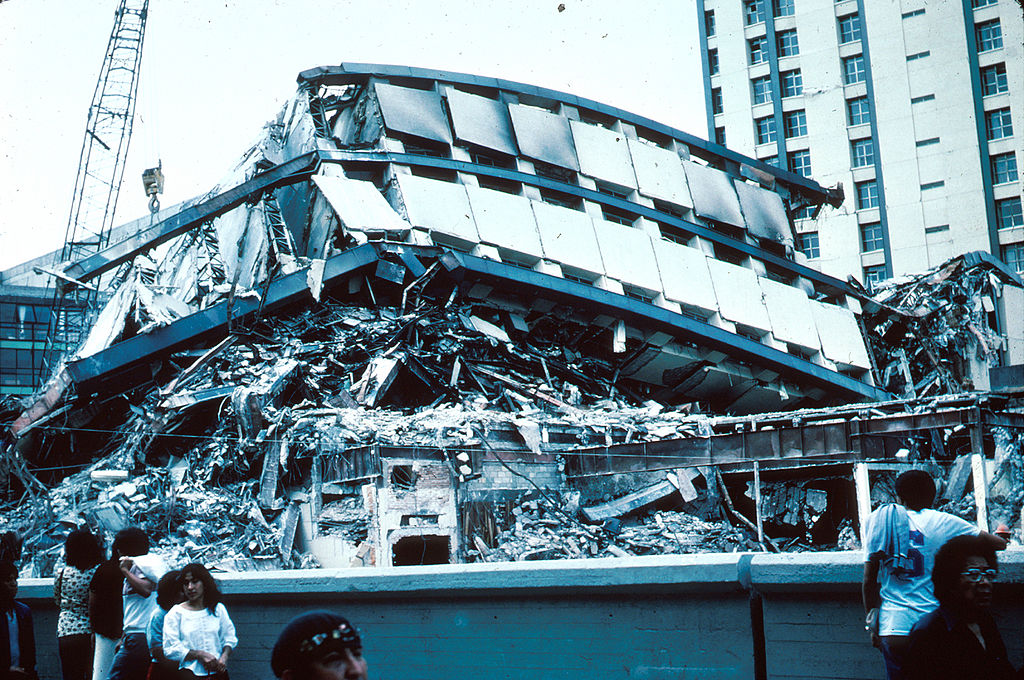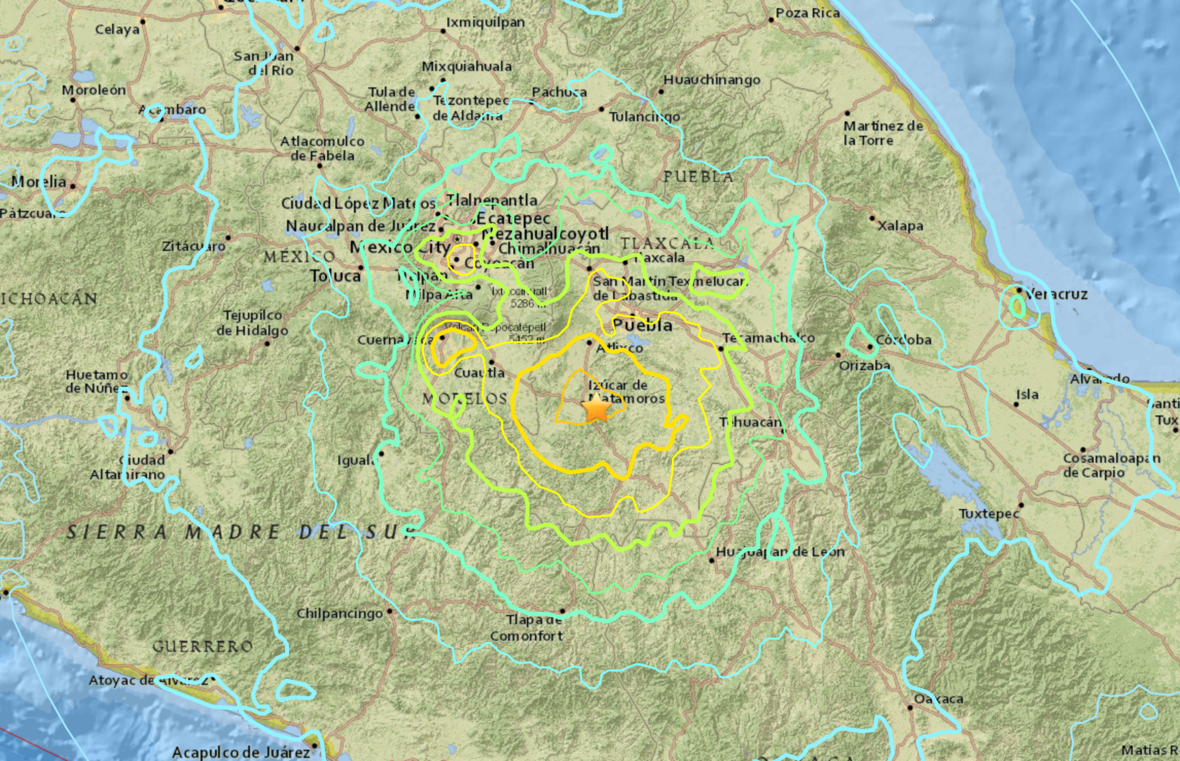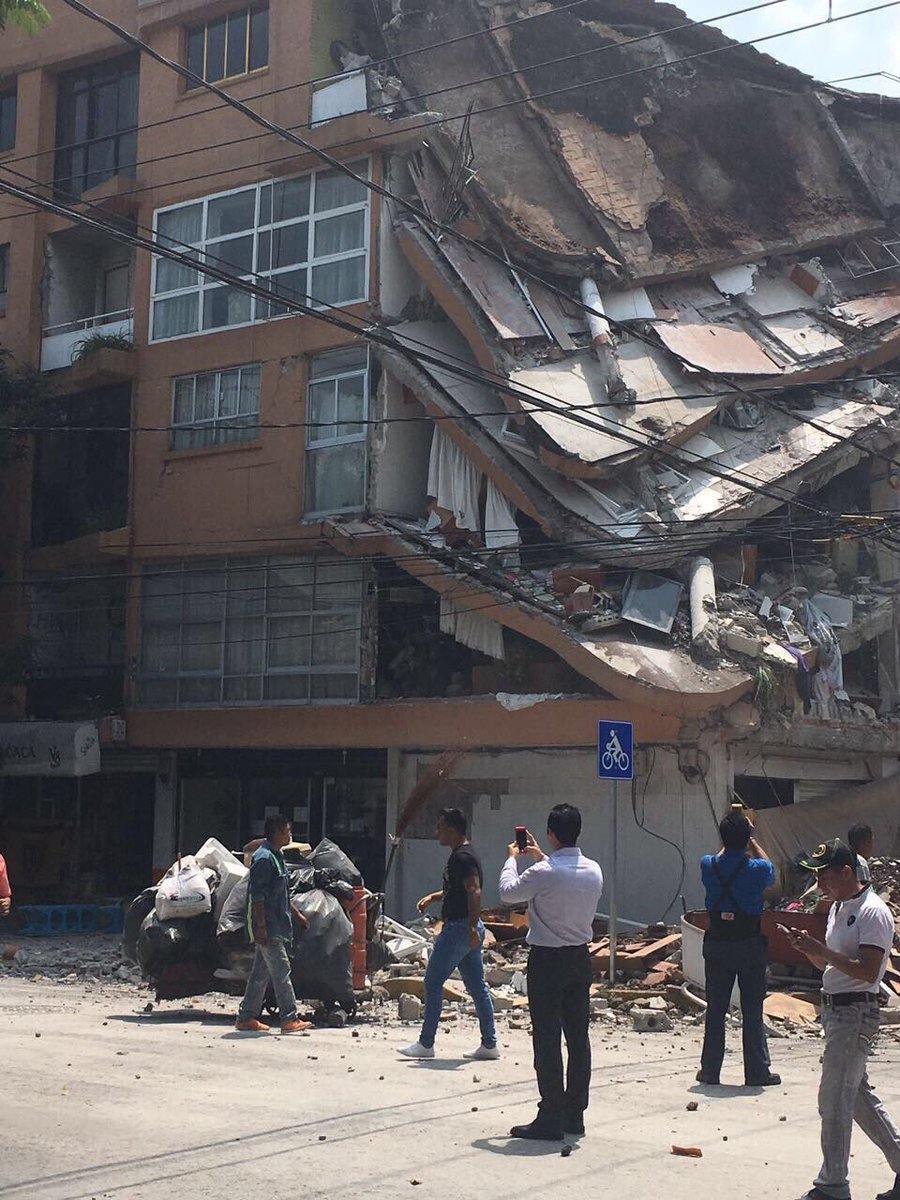
Every year on September 19, residents of Mexico City conduct an emergency evacuation drill to mark the anniversary of an 8.0 magnitude earthquake that killed about 10,000 residents in 1985. Yesterday was no exception. At 11:00 am, thousands of people left their homes, offices, and shops and made their way to the predesignated safe zones. Little did they know that within just two hours, the evacuation warning bells would ring again. Only this time, they were instantly followed by the violent shaking of a 7.1 magnitude earthquake.
The powerful tremor comes on the heels of an 8.1 earthquake, the strongest to hit the country in a century, that struck 60 miles off the coast of Chiapas state on September 8. While the earthquake did topple numerous structures and result in over 90 fatalities, USGS geophysicist Jessica Turner believes the destruction would have been worse if it had struck closer to the coast.

Unfortunately, Tuesday’s earthquake had its epicenter on land in the state of Puebla, about 80 miles southeast of Mexico City. The powerful tremor caused entire apartment blocks to sway and reduced several homes, buildings, and bridges to piles of rubble. Particularly hard hit were the older structures built before the 1985 quake ushered in more stringent building codes.
At least 225 people, mostly in Mexico City, have lost their lives. Among them are 20 children and two adults, who died when their three-story school collapsed. While rescuers managed to pull out two students safely, 30 children and eight adults are still missing. Concerned parents are still helplessly watching from the sidelines as efforts to find them continue. Similar scenarios are being witnessed across the city and the surrounding areas, as officials and residents frantically dig through the debris, looking for survivors.
Many of those whose homes survived the impact are too afraid to enter them for fear of aftershocks and gas leaks. They are either roaming the streets or taking refuge with strangers who live in areas that were not affected. As of early Wednesday morning, over 5 million Mexico City residents remain without power.

The quakes that occurred on the Pacific Ring of Fire, a 25,000-mile (40,000 km) horseshoe-shaped area which lies on the edge of the Pacific plate, were caused by the rupture of fault lines within the North American tectonic plate. According to John Vidale, a seismologist and professor of Earth Sciences at the University of Southern California, downtown Mexico City is particularly vulnerable to the tremors since it is built on an ancient lake-bed. The expert says, “Because of the very soft and wet ground underneath, its soil amplifies shaking like Jell-O on a plate, and is prone to liquefaction, which is the ability to transform dirt into a dense liquid when sufficiently churned."
What made Tuesday’s tremor even more damaging was that it had a depth of just 33 miles (51km). Experts say shallow earthquakes (anything below 43 miles/ 70 km) cause more damage than those that strike from a deeper distance, simply because seismic waves have to travel farther to the surface, losing energy along the way.

Though two major earthquakes in the same country within a week of each other may sound rare, they are apparently not unusual. Behzad Fatahi, the associate professor of geotechnical and earthquake engineering at the University of Technology Sydney, says, "When fault lines rupture, they can induce further ruptures as a chain effect in other parts of the same fault or nearby fault lines." He doesn’t, however, believe that Tuesday's earthquake was related to the one on September 9, and cautions that it may still trigger some aftershocks. The only good news is that Fatahi thinks that the two big tremors have helped release significant stored energy, which means “that the likelihood of much larger earthquakes in the region has reduced now.”
Stay strong Mexico – the world’s prayers and good wishes are with you!
Resources: latimes.com, CNN.com,